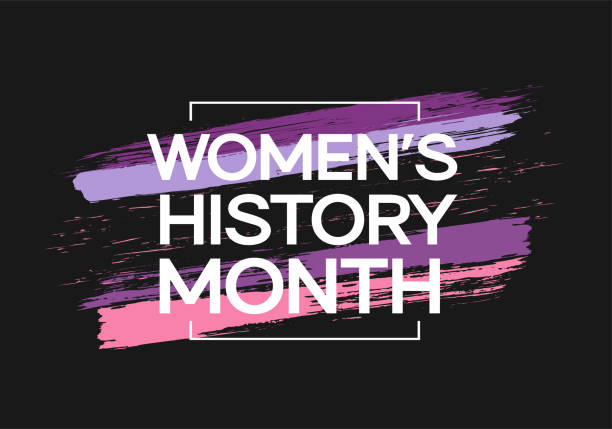(ThyBlackMan.com) It is estimated the lack of financial literacy, cost Americans ~ $300 billion in 2018, or three Bill Gates’ fortunes. While financial literacy is not rocket science, 63% of Americans are considered “financially illiterate.” People who are financially illiterate have difficulty applying financial decision-making skills to every day real-life situations.
SO WHAT EXACTLY IS FINANCIAL LITERACY
Financial literacy is understanding all aspects of money, such as: taxes, savings, paying bills, retirement, budgeting, paying for school, investing, etc. And understanding, EXACTLY how YOUR HARD EARNED money is spent and saved.
Financial SUCESS – WEALTH BUILDING is achieved by
- Careful Spending
- Consistent Savings
- Consistent and Competent Investments
SO WHY ARE MORE AMERICANS NOT FINANCIALLY LITERATE/COMPETENT IN THE U.S.?
See last week’s blog: DO YOU WANT TO FINALLY STOP PAYING FOR THE RACIAL WEALTH GAP?
Typically our K-12 grades, teach ZERO, about financial literacy. While 17 states have some mention of financial literacy in public schools curriculum, the effectiveness of state programs varies greatly. Some states simply mention it as a goal and NOTHING else. On the other hand, Georgia and Texas have strong programs in their high schools. Data from GA and TX shows adults default rates are going down and credit scores up! A win-win! Other states need to benchmark these programs.
Write to your state legislature representatives and recommend this strategy!
Majority of colleges DO NOT mandate financial literacy courses, but in my opinion take advantage of those who lack financial literacy and sell useless degrees. A college degree where you cannot find a job is an expensive piece of paper.
INCREASING YOUR FINANCIAL LITERACY
There are relatively easy and inexpensive ways to boost your financial literacy to help with important decisions:
- How Much Emergency Savings,
- Buying A Home;
- Paying College Loans;
- Helping Your Children With the Cost of College;
- Funding Your Own Pension;
- IRA versus ROTH IRA;
- If your company’s 401-K plan does not match should you contribute to that plan or an IRA/ROTH-IRA;
- Do you want a fixed-rate, adjustable-rate, interest-only or FHA mortgage;
- Should you claim the standard deduction on your taxes or itemize;
- How much do you need to safely retire?
In college my friends and I were introduced to billiards. But we had a few serious problems. First, we did not know the rules and we had no idea how to play. So essentially we were billiards illiterate! We had to build our competency by learning the rules and strategies of the game and practice the game.
Building your financial competency is similar, learn the rules or jargon and learn how to better manage YOUR HARD EARNED money! Put to practice what you learn!
JUST IN TIME LEARNING
Because of today’s technology it is easy to use just in time learning. As a photographer, when I wanted to know the manual settings for shooting night Christmas tree lights, I simply goggled the topic. When you apply just-in-time learning to your immediate problem, you learn something new, make progress faster and retain information better.
The approach is simple:
- Choose what you want to learn based on an immediate goal.
- Find the information using the Internet, normally Google.
- Review and learn the concept.
- Practice and use that skill immediately.
The goal is to gain access to new ideas, principles, solutions, when you need to solve problems. I constantly use just in time learning to write this blog and update my Wealth Building Powers Instagram feed, which focuses on improving financial literacy.
https://www.instagram.com/wealth_building_powers/
FIVE INEXPENSIVE WAYS TO ACHIEVE FINANCIAL LITERACY
Below are a few learning methods. Pick the one or two that best fits your learning style preferences.
- READING
My preferred learning method is reading. There are thousands of finance and investment books available. And every book is normally available at your public library. Use the Amazon ratings and reviews to identify a few good finance/investment books. My favorite finance book – “The Millionaire Next Door”.
There are hundreds of Finance Magazines and Newspapers. I read Investor’s Business Daily Newspaper, sometimes the Wall Street Journal, when traveling. I subscribe to the following magazines: Business Week, Fortune, and Money.
There must be millions of personal finance articles you can find using Google. 
You can follow finance and investment Subject Matter Experts on: Face book, LinkedIn, Instagram etc. Reading up on financial issues is one of the easiest and fastest ways to build your financial literacy.
Learning is a continuous journey!
- CLASSROOM OR ON-LINE CLASSES
I sometimes attend free or inexpensive finance workshops in my community. You can take financial courses at your local Community College or online. Some banks and credit unions offer workshops to assist people with various issues such as debt, student and home loans, and budgeting. I have accounts at Fidelity and Vanguard and both offer on line free classes.
Often times your local library or Houses of Workshop will offer free or inexpensive financial workshops. You can also benefit from taking an online course in any one of multiple subjects, like accounting, retirement planning, reducing the cost of college, etc.
I have taken several courses using below websites:
- Udemy {https://www.udemy.com/) offers detailed workshops on finance, real estate, taxes, etc, often on sale for $13 or less. I always buy my courses on sale!
The Great Courses –{https://www.thegreatcourses.com/courses/} offer multiple workshops on finance, investments, stock market, etc. Their courses tend to be relatively expensive, starting at about $160. If you wait a few weeks or months, the prices drop significantly, (less than $50). I always buy my courses on sale!
- Khan Academy {https://www.khanacademy.org/} offers FREE short videos including: buying a home, personal finance, bonds versus stocks, college loans, etc. Khan Academy is a great place to start given the FREE price!
- FINANCIAL AND INVESTMENT PODCAST,
Tuning in to a finance and/or investment podcast can be a good launching point to financial literacy. Simply use Google to find the podcast that may be right for you. I have tried several, but have not really found one I enjoy.
- YOU-TUBE & TELEVISION FINANCIAL SHOWS
There are a number of finance and investment You-Tubes. Just go to You-Tube and search for the topics you are interested in (finance, buying a home, rental properties, Buying ETF’s, 401-k, etc.)
There are also several finance shows on various channels: CNBC, FOX Business, etc. I sometimes believe these anchors are paid by the word! But give it a try.
- Financial Professionals (This is the costliest solution – $100+)
Another way to learn about finance is to talk to, and work with, a financial planner, a tax planner/CPA or an Estate Planner on a one-on-one basis. Getting the facts from a financial expert is a great learning experience. Plus, you get the valuable opportunity to ask personal financial questions that are important to you. Always ask about cost before making an appointment.
- FINDING A MENTOR OR JOINING AN INVESTMENT CLUB
If you have someone in your family or a friend who is good at finance and investments, approach them about finding a mentor. They may just volunteer!
There are numerous investments clubs in the US (Google the topic with your zip code).
I started a family investment club a little over a year ago. Consider joining with like-minded people and starting your own club.
One of the universities I attended has a very good investment club that meets monthly. We all contribute some dollars, so the club actively invests. But the biggest benefit is the wealth of investment knowledge in the club!
Check local colleges or you alumni organizations.
CONCLUSION
How many of you will get a pension when you retire? Twenty-two million people work for the federal, state or local governments, making up 14% of the labor force. Seventy-eight percent of these public sector employees will receive a pension. These pensions are funded off the backs of the American taxpayers. About eleven percent of workers are unionized and 67% have a pension plan
The largest group, non-union, private-sector workers, comprise about 75% of the workforce and only 13% are covered by a pension plan.
Can Social Security alone secure your retirement? The Average social security payment in the US today is ~$1,416/month. If that is your only income, can it pay for rent, food, utilities, health etc.?
We have a retirement crisis today in America, where the majority of people have not saved enough to retire. In addition we have an expanded life expectancy. When social security was first started the average life expectancy was <65 years of age. Today that average is approaching 80 years of age.
Financial Literacy is a NEED, A MUST HAVE.
WE MUST UTLIZE our financial literacy to achieve:
- Careful Spending
- Consistent Savings
- Consistent and Competent Investments
- Adequate Retirement Savings
Many Americans grow up in a household where you do not ask for help. You work hard. It is embarrassing to ask your banker, or Credit Card Company, even your family members financial questions.
We must make it easier for Americans to ask for help. That is an objective of this blog. There is no question, I consider dumb, because I likely asked it at one point!
ALL COMMENTS, RECOMMENDATIONS AND FEEDBACK ARE WELCOME. SEE BELOW LEAVE A REPLY SECTION.
PLEASE SIGN UP TO FOLLOW THIS BLOG by clicking AT THE TOP OF THE HOME PAGE: FOLLOW BY EMAIL
ALL LIKES ARE GREATLY APPRECIATED!
DISCLAIMER
I am a proud nerd (my beautiful wife and daughter told me so) investment and finance blogger, with University Rutgers, MBA and Harvard University, Advanced Management education.
I started my first business at ~13 years of age. I am a successful investor in equities and real estate and happy to share my personal finance and investment lessons learned with you. I am NOT however, a licensed financial advisor. Please do not construe my suggestions on this blog, as recommendations for your personal situation. For individual finance advice please seek your own licensed CPA or financial advisors.
Staff Writer; Styron Powers
One may visit this brother over at; Powers Investments Management and also connect via LinkedIn; S. Powers.

















Leave a Reply